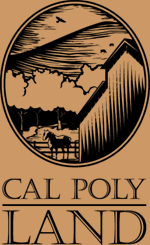|
Interview with Dr. Mark Shelton
|
|
|
We contacted Dr. Mark Shelton, Associate Dean of the Depatment of Agriculture, to ask him his opinion on the effect the partnership has had on the university. He graciously donated his time and opinions and allowed us to include them in our website. Below is what we learned from our conversation with Dr. Shelton.
|
|
|
How has Cal Poly benefited from the partnership with Mission Avocado? It has allowed Cal Poly to set up a commercial scale setting for students to learn from. Prior to the partnership we had 16 acres of land where students could learn the basics of managing an orchard. The newly expanded orchard has provided the "big block commercial scale setting" from which the students now have the oppurtunity to gain "real world educational experience." With Mission Avocado, we now have access to the top fruit shipping company in California with a full-time on-site manager who will be able to assist students in a way unlike that of an instructor with many other classes and obligations. Also, in about three years, we will have our first crop and a percentage of the proceeds will be donated to the College of Agriculture. What classes utilize the orchard? Currently Fruit Science courses- California Fruit Growing, Citrus Avocado project and Fruit Tree Propagation. In the future he predicts Soil Sciences and Irrigation courses will make use of the orchard as well. There is a drainage system using state-of-the-art technology to prevent run-off. Such a system would be very useful in an Irrigation course. Eventually students will be able to utilize the orchard for their senior projects and graduate work as well. Were there any concerns of some possible disadvantages? There are always concerns with making changes to land and this partnership was no exception. Many of the concerns were from the Animal Science department because the orchard was set up on a large area of grazing land. Dr. Shelton and the others involved in the decision-making process saw this as "one form of agriculture replacing another." The form being replaced had minimal dollar value and a lack of educational value as well. Taking all things into consideration, the partnership with Mission Produce was formed in the best interest of the institution and the students.
|
